Catching Up pt. 3: A Natural History of the Senses, The Housemaid, North and South, The Book of the City of Ladies, Epileptic
In A Natural History of the Senses, Ackerman draws from a number of sources and memories in a meandering rumination about the senses through which we understand the world and interpret our own human experience. It is particularly hard to communicate the specificity of different physical sensations, but Ackerman writes about smells, touch, and the like so effectively that these mercurial interpretations manifest concretely and jump straight off the page, making the reading experience, well, sensual. The book is filled with interesting trivia, such as that smell was likely the first sense developed in the primordial oceans by the earliest living organisms, and I enjoyed the recounting she did of an interview with a professional “nose”, or perfume mixologist. Clearly I was most won over by the chapter on smell, as it sticks most strongly in my memory. However, I became increasingly annoyed with Ackerman and her frequent, bizarrely specific and lengthy descriptors. They often distracted from her main point and felt unfocused, a feeling intensified by the book’s format of short, thematically arranged but otherwise non-sequitor chapters. Also, while not generally opposed to heavy reliance on anecdote, hers felt obnoxiously self-referential and pompous. So, while the subject matter was fascinating, I didn’t really get along with Ackerman very well and will likely avoid her other writing.
One day, an older woman labeled a “witch” and disowned by her grown children finds a dead infant abandoned behind her hut in rural Ghana. Word spreads quickly through her village and suddenly everyone is arguing about who is to blame, with men vilifying the imagined neglectful mother and the women bemoaning the sad arrogance of undependable men. But as the true story of what happened is told through the perspectives of a number of women, it becomes clear that this child’s death is not the fault of one or another sex, but a society in which exploitation is quickly becoming a dominant means of attaining wealth. It begins when a young housemaid travels from her village to Accra to work for a wealthy older woman whose deceased husband’s family believes that her money rightfully belongs to them. The housemaid gets caught up in a plot of inheritance to win back the money for the husband’s family, but does not realize that her employer, though happy and confident in her independence, is not free of the sexual demands of the businessmen who remain in a class above her and so is not easy to manipulate. Nor does she understand that her own family’s motives may not be good for her, personally. The final telling of what happens to her baby is tragic but it is the fault of no individual: instead, it is the result of greed and an caustic individualism. A very worthy novella that counts toward Kinna’s Africa Challenge.
I’d been wanting to read North and South forever, but passed up the North and South read-a-long because it overlapped with my trip to Kenya and then promptly forgot about it. Even though I coincidentally ended up reading it at the same time as the read-a-long, I guess it’s still good that I wasn’t signed up because I didn’t have regular internet access nor the time to participate in the discussions, but anyway. I had huge expectations for this book, and while I enjoyed it, it fell just a little flat for me. It’s hard not to compare Gaskell to her contemporaries: not as much nuance as Austen, not as righteous as Dickens, less detailed than both. Perhaps such comparisons are unfair, but some combination of Austen and Dickens is what I thought I was going to get. Margaret, who moves from an idyllic country village to a busy, crowded industrial town, falls in love with the rugged Mr. Thornton (about whom I agree with Iris is a much more worthy love interest than most of Austen’s suitors ;)). There, she befriends some of the working poor that she’d previously been so judgmental about, and sides with them in a strike against factory-owner Thornton. Thornton, a proud, self-made man, learns through Margaret to sympathize with those less successful than he in “working their way up” while Margaret reconciles herself to the reality that the country isn’t exactly paradise for the poor, either. Culture clash, class, and the industrial boom frame this troubled love story, and I appreciate how direct Gaskell was in dealing with such themes. However, there was a bit too much compromise and neatness in the way it all wrapped up for my taste. Still liked it, though, so will try more of Gaskell.
This was (ahem) the FIRST book listed for The Year of Feminist Classics challenge* and yes, I only got to it last month. This book was written by Christine de Pizan, the only (?) professional female writer in late fourteenth century Europe. It is impressive not only that she was able to support her family with her writing at this time, but that she was able to do so while unequivocally challenging the most common anti-woman sentiments of her day. Here, she imagines a scenario in which Reason, Rectitude, and Justice come to her aid embodied as three strong and lovely women to help her construct a city of positive history and mythology in which she will collect and house all the world’s most virtuous ladies. They do so first by debunking myths such as that women are natural liars, that they lack conviction and are emotionally weak, that they are selfish and are intellectually inferior to men. Much as Mary Wollstonecraft would do almost four hundred years later in A Vindication of the Rights of Woman, de Pizan argues that it is the way in which society brings girls up differently from boys that makes these stereotypes appear true and universal, but that given an equal education, girls would show as much aptitude as boys and in the same subjects (she does, however, fall very short of actually advocating for this). While her argumentation rested on reworking mythology, and this is not an acceptable form of debate nowadays, it was then–and since I was unfamiliar with so many of the stories, I kind of got a kick out of ’em despite the fact that it became very, very tedious reading. All the stuff about being a good, chaste wife etc. was irritating to my modern sensibilities, too, but I get that then she was reacting against the fact that women were only thought to be about their bodies, rooted in materiality with no spiritual or mental inner lives and value. I wouldn’t call this book relevant for feminists today, but I still enjoyed it as a feminist for the times when de Pizan utilized her stinging sense of humor and because it really made me consider context. It’s interesting to see that some ideas which are completely regressive and sexist now were once a step AWAY from an oppression that we still know, but in a completely different transformative phase. Of course, not all reactions against oppression are “progressive”, nor can that word be applied evenly across cultures and eras, which raises a lot of important questions about what constitutes progress in any given situation.
Epileptic is the deeply troubling autobiographical story by David B., formerly Pierre-Francois Beauchard, whose life has largely been shaped by his brother’s epilepsy and his family’s never-ending search for a cure. Epilepsy was little understood in 1960’s France when Jean-Christophe had his first seizure, and one of the most horrific aspects to this family history is how cruelly Jean-Christophe was treated by children and adults alike, alienating him, his siblings, and his parents from the community as punishment for exposing them to the symptoms of his illness. Their parents move Pierre-Francois, Jean-Christophe, and their sister in and out of various new-agey macrobiotic communes, inspiring hope in an unrelenting succession of mystical mentors and spiritual healers who are ultimately as lost as they are. While his parents experience increasing guilt after every failure to “fix” their eldest son and his sister becomes despondent with depression, David B. pours himself into his illustrations, picturing epic uphill battles that signify his struggle against his brother’s sickness. His thick, bold-lined drawings are appropriately claustrophobic and disconcerting, adding a fantastical element to this tragedy. David B. is always honest, refusing to leave out the ugliest bits of his history and the resentment he sometimes felt toward his brother, whose disease he could never measure up to. Dark and moving; beautiful work and intensely raw.
*I think it’s time I admitted to myself and everyone else that I’m not going to catch up on The Feminists Classics challenge this fall like I wanted to. In fact, there’s only a few books from this year’s selection that I haven’t read, but even excluding re-reads, it just isn’t going to happen. Truth be told, I’ve been dealing with the aftermath of a Very Bad Thing that happened earlier this month in the life of myself and my friends and have had difficulty concentrating on books, so I know that if I don’t allow myself to read at whim I won’t be doing much reading at all, and I don’t want that. Sincerest apologies for committing to it and then only reading one book and not participating in any of the conversations**…hopefully I will get to all the others at a later date, as they all remain interesting to me. I still plan to host the last read when the time comes, but all reading projects and such will otherwise be put on hold or ignored.
**Hello, guilt.
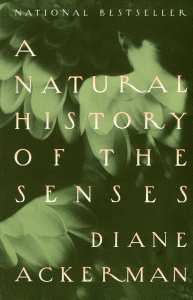
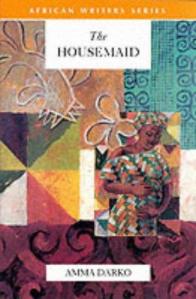
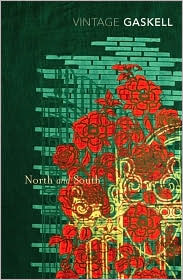
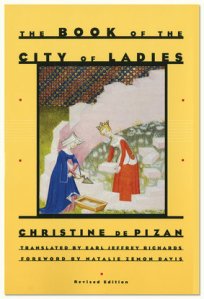
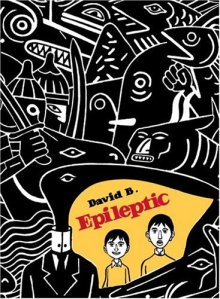
Noooo! No, guilt, Emily. I’m so sorry you’re going through rough times 😦 Definitely follow your reading whims and please take care of yourself. And if it helps, you’re not alone. Between the stress of prolonged unemployment and an international move, I’ve only read 3 of this year’s books and have completely given up on catching up. These things can happen to anyone. Sending lots of good thoughts your way!
Ana @ things mean a lot
October 22, 2012 at 9:01 am
Aw, thanks Ana, I appreciate it. It’s hard to let go of commitments, but I realize there’s no point in forcing something that’s supposed to be fun. Things will get better…I hope they become less stressful for you, too!
Emily Jane
October 22, 2012 at 9:44 pm
the housemaid sounds rather good Emily I do plan to try and read all the African writer series over time such a great collection ,all the best stu
winstonsdad
October 23, 2012 at 12:44 pm
Yes me too, Stu! I haven’t been disappointed by one yet.
Emily Jane
October 23, 2012 at 10:41 pm
So many books I want to read! Everything is on my wishlist except The Housemaid. And sadly, I didn’t finish my own readalong (life). Will be getting back to N&S soon!
Andi (@estellasrevenge)
October 24, 2012 at 3:21 pm
Eh, it happens! I hope you get to them eventually as I enjoyed them all (well, with serious reservations about the first). And I would encourage you to add The Housemaid to your wishlist as well 🙂 Enjoy the rest of North and South, whenever you get to it!
Emily Jane
November 2, 2012 at 10:11 pm